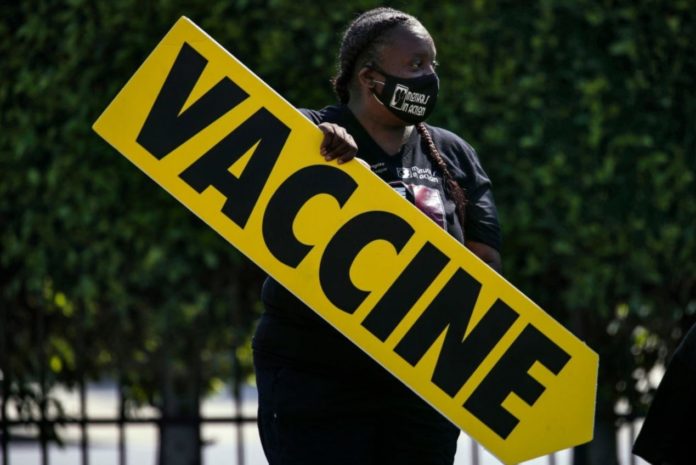The research comes at a crucial time, when vaccine supplies are quite slow to reach the majority of the world’s population, and Covid-19 cases are on the rise in the United States, the United Kingdom, Africa, Asia, and Latin America.
A recent research looked at vaccination acceptance and hesitancy rates in 10 low-and middle-income Asian, African, and Latin American nations.
According to a study published in Nature Medicine, readiness to get a COVID-19 vaccination was much greater in poor nations (80% of respondents) than in the United States (65%).
- Scientists in Fear of This New Predator From Red Sea Eating Native Species in Mediterranean
- Does This Mean We Stopped Being Animal and Started Being Human Due to ‘Copy Paste’ Errors?
- The One Lifestyle Choice That Could Reduce Your Heart Disease Risk By More Than 22%
- Aging: This Is What Happens Inside Your Body Right After Exercise
- Immune-Boosting Drink that Mimics Fasting to Reduce Fat – Scientists ‘Were Surprised’ By New Findings
The study, which covers over 20,000 survey respondents and brings together researchers from over 30 institutions including the International Growth Centre (IGC), Innovations for Poverty Action (IPA), WZB Berlin Social Science Center, and the Yale Institute for Global Health, provides one of the first insights into vaccine acceptance and hesitancy in a broad selection of low- and middle-income countries (LMIC).
The primary reason for vaccination acceptance among LMIC respondents (91%) was personal protection against COVID-19, whereas the most frequent reason for vaccine reluctance (44%) was worry about side effects. Health professionals were seen as the most reliable providers of information about COVID-19 vaccinations.
According to the results, emphasising vaccine delivery to low- and middle-income nations should result in significant returns in terms of increasing global vaccination coverage.
As COVID-19 vaccine supplies trickle into developing countries, the next few months will be key for governments and international organizations to focus on designing and implementing effective vaccine uptake programs
said Niccolo Meriggi, Country Economist for IGC Sierra Leone and study co-author.
Governments can use this evidence to develop communications campaigns and systems to ensure that those who intend to get a vaccine actually follow through.
Scientists, who conducted the polls between June 2020 and January 2021, stress that vaccination acceptability may change over time and depending on the information individuals receive. While the evidence for the safety and effectiveness of current COVID-19 vaccinations has improved in the past six months, severe but uncommon adverse effects may have shattered public trust.
Saad Omer, co-author of the research and director of the Yale Institute of Global Health, said:
What we’ve seen in Europe, the US, and other countries suggests that vaccine hesitancy can complicate policy decisions, thereby hindering rapid and widespread vaccine uptake. Governments in developing countries can start engaging trusted people like health workers now to deliver vaccine messaging about side effects that are accurate, balanced, and easily available to the public.
- Scientists in Fear of This New Predator From Red Sea Eating Native Species in Mediterranean
- Does This Mean We Stopped Being Animal and Started Being Human Due to ‘Copy Paste’ Errors?
- The One Lifestyle Choice That Could Reduce Your Heart Disease Risk By More Than 22%
- Aging: This Is What Happens Inside Your Body Right After Exercise
- Immune-Boosting Drink that Mimics Fasting to Reduce Fat – Scientists ‘Were Surprised’ By New Findings
Across countries, we observe that acceptance of COVID-19 vaccines is generally somewhat lower than for other vaccines, perhaps because of their novelty. However, the consistently pro-vaccine attitudes we see in low and middle-income countries give us reason to be optimistic about uptake
Alexandra Scacco, a WZB Senior Research Fellow and study co-author, said.
We hope that evidence from our study can help inform strategies to expand global COVID-19 vaccination.
Photo by Irfan Khan / Los Angeles Times via Getty Images
